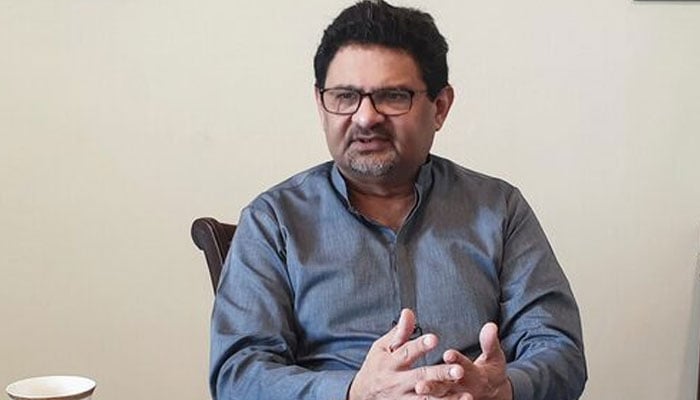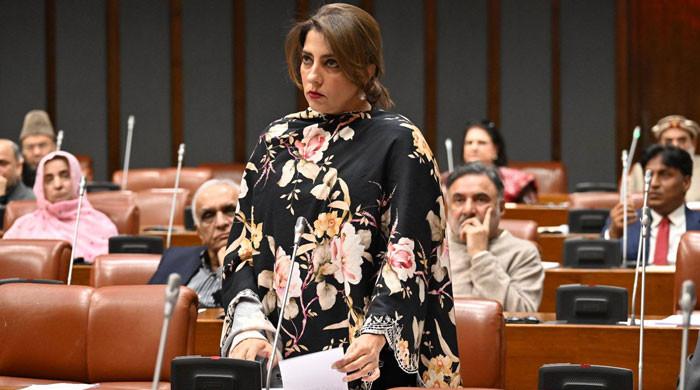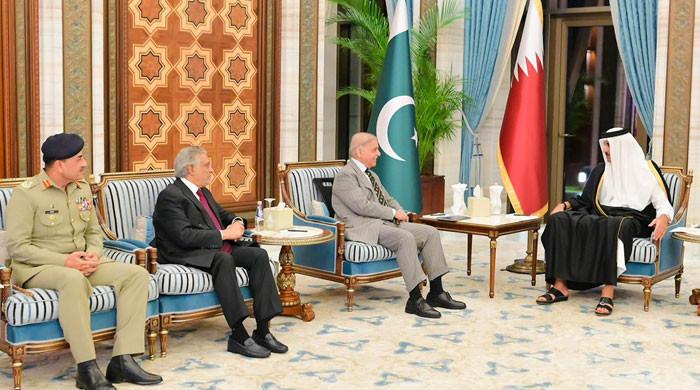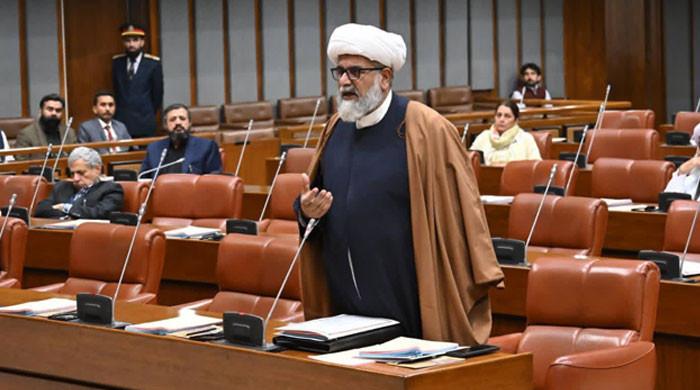Miftah Ismail rebuffs WFP contracts allegations, warns of legal action
Former finance minister stresses Ismail Industries supplies WFP under international procurement protocols
July 27, 2025

- Miftah advises Tariq Fazal Chaudhry to substantiate his claims.
- "I intend to take legal action for defamation," warns ex-minister.
- Says his company supplies WFP under int'l procurement protocols.
KARACHI: Former Finance Minister Miftah Ismail has strongly denied allegations that his family’s company unfairly benefited from World Food Programme (WFP) contracts tied to Pakistan’s Benazir Nashonuma Programme (BNP), calling the claims politically motivated and threatening legal action, The News reported on Sunday.
"If the minister has evidence of my involvement in any wrongdoing [...] I advise him to proceed against me in NAB or FIA. Otherwise, I intend to take legal action for defamation," Miftah said in a post on X urging Minister for Parliamentary Affairs Dr Tariq Fazal Chaudhry to substantiate the claims in court.
The controversy emerged during a Senate session on July 25, when Chaudhry alleged that a ex-minister's firm was the sole supplier of specialised nutrition under the BNP and that Pakistan's procurement rules had not been followed. Senator Anusha Rahman of the ruling Pakistan Muslim League-N (PML-N) further questioned the transparency of the programme’s ballooning budget.
At the centre of the controversy is a sharp increase in the programme’s budget from Rs2 billion to Rs21.5 billion in 2022-23, during Ismail’s tenure as finance minister. Ismail Industries, a company owned by Ismail's family, has been a long-time supplier to the World Food Programme (WFP), which procures specialised nutrition products for the BNP.
Miftah clarified that Ismail Industries has supplied WFP under international procurement protocols for over two decades, across multiple countries. "Every packet that WFP buys from us is through an international tender," he said, adding that the BNP contract predated his term in office and continued after his departure.
He accused Dr Chaudhry and Senator Anusha Rehman of seeking political mileage rather than the truth. "Five minutes studying the issue would have satisfied any reasonable and honourable person that there is no corruption or wrongdoing," he wrote in the post.
According to documents shared in the Senate, WFP handled procurement and logistics for the nutrition programme using its own internal processes and audit systems. Pakistani public procurement rules and audit mechanisms were not applied.
In his defence, Chaudhry said on Saturday that the allegations raised in the Senate regarding the BNP and its connection to former finance minister Ismail's company were based on official records, not personal accusations.
Speaking on Geo News' programme "Naya Pakistan", the parliamentary affairs minister clarified that the information presented in the Upper House was sourced from the Ministry of Poverty Alleviation. "I made no personal accusation, nor did Senator [Anusha] Rehman. These were facts provided by the ministry," he said.
The programme, which provides nutrition supplements to pregnant and lactating women and children under two, is jointly managed by BISP and WFP.
The WFP handles procurement independently and is not subject to Pakistan’s Public Procurement Regulatory Authority (PPRA) rules — a point both the minister and the host acknowledged.
Chaudhry, however, raised questions about whether such a structure — where public funds are transferred to an international agency that then handles procurement — should be subject to greater oversight.
"Normally, UN programmes bring funding into the country. Here, the government gives funds to the WFP, which conducts procurement outside our local audit frameworks," he said.
So far, Rs97 billion has been disbursed under the Nashonuma Programme since its inception in 2020, the bulk of it after Ismail left office. When asked why the issue wasn't raised during subsequent tenures — including those of Ishaq Dar and Muhammad Aurangzeb — Chaudhry acknowledged the question and said the matter has now been referred to the Senate Standing Committee for a broader review.
"The committee will look at multiple dimensions — whether there was a conflict of interest, if the procurement mechanism was appropriate, and whether PPRA rules should apply," he said.











